Estimated reading time: 8 minutes
Choosing the right type of water for your aquarium can be confusing. Many aquarists wonder whether distilled water is a good choice for their fish tanks.
One key fact to know is that distilled water, while pure, lacks essential minerals needed for the health of your aquarium’s inhabitants.
This article will explore why and how you might use distilled water in your aquarium. We will compare it with other types of water like tap and purified water and discuss if it’s safe or beneficial to use.
Key Takeaways
- Distilled water is pure but lacks essential minerals needed for fish tanks. Aquarists must remineralize it before use.
- Tap water, RO water, and RO/DI water are other options with their own benefits and drawbacks for aquariums.
- Adding minerals back to distilled water is crucial for the health of aquarium inhabitants. Testing and adjusting pH levels are also important steps.
- Use distilled water to reduce tap water hardness or when creating specific environments in your fish tank that require soft water.
- Regular maintenance, including cleaning filters and checking for algae growth, keeps a healthy environment in the fish tank.
Comparing Distilled Water with Other Water Types
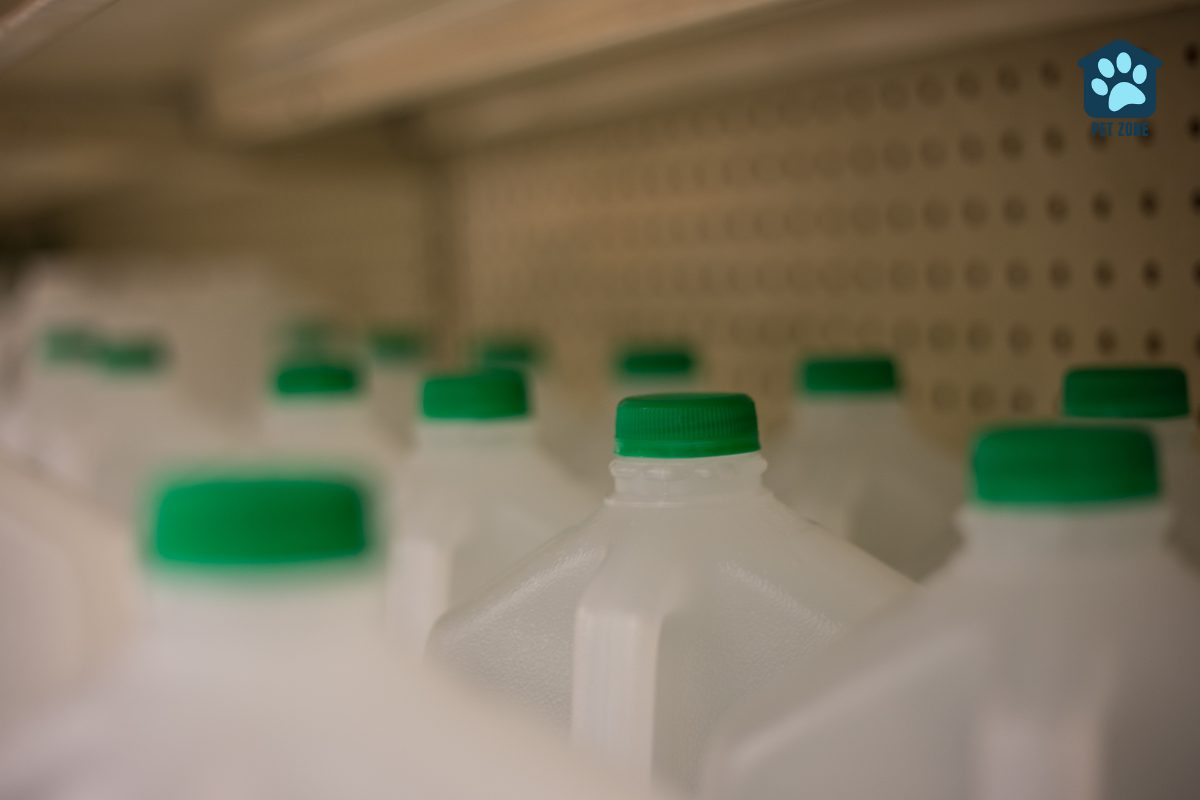
Tap Water
Tap water often has impurities and contaminants not safe for fish. It might contain chlorine or heavy metals, which harm aquatic life.
This type of water also varies in hardness, which is not ideal for all fish species. Some aquarium inhabitants need soft water, while others thrive in harder conditions.
The pH level of tap water can differ greatly from that of distilled water. Fish are sensitive to changes in pH levels, making it crucial to test the quality of your tap water before adding it to the tank.
Without proper preparation, using tap water directly could lead to health issues for your fish and plants.
Reverse Osmosis (RO) Water
Reverse osmosis water, often called RO water, is a great choice for your aquarium. This process removes contaminants from water by forcing it through a semi-permeable membrane.
RO systems are effective at reducing many types of impurities found in tap water or spring water, making the water safer for your fish. RO water can retain some minerals that are necessary for fish and plants in both freshwater and saltwater aquariums.
However, you may need to remineralize RO water before using it in your fish tank to maintain the right environment for your aquatic friends.
Reverse Osmosis Deionized (RODI) Water
RODI water stands as the purest form of water for your fish tank. This type undergoes a thorough scientific process to remove ions, leaving just pure H2O.
It’s free from sediments, phosphates, or silicates that could harm the environment of your fish.
Choosing RODI water means you’re selecting the best source of water available for both freshwater and saltwater tanks.
With nothing in it but H2O, it makes a perfect blank canvas to create the ideal conditions for your aquatic species.
As with distilled or RO water, you will need to remineralize RODI water to make it suitable for the specific needs of your aquarium.
Evaluating Distilled Water for Fish Tanks
Distilled water comes with its pros and cons for fish tanks. It is pure, having no harmful chemicals or heavy metals that might harm fish.
This purity makes it an attractive water source for aquariums, especially where tap water quality is poor.
However, this very purity poses risks. Distilled water lacks essential minerals necessary for the well-being of your fish.
To make distilled water safe for aquatic life, aquarists must remineralize it before use. Products that add back these vital trace elements ensure the health and safety of the tank’s inhabitants.
Even though distilled water can reduce tap water hardness, using it straight from the bottle could lead to a stressful environment for fish due to missing minerals.
Therefore, understanding how to properly prepare distilled water is crucial for maintaining a healthy freshwater aquarium.
When to Use Distilled Water in Aquariums
Use distilled water in your fish tank to make the water safer for your fish. It helps reduce tap water hardness, which can be harmful to many fish species.
This is especially important if you’re trying to create a specific environment that requires softer water.
You might choose distilled water for your aquarium when mixing it with tap or bottled spring water to achieve ideal water parameters.
Adding pure distilled water is great for topping off the aquarium because it doesn’t introduce new minerals or contaminants.
When water evaporates, trace elements and essential minerals remain in the tank, maintaining its balance.
Freshwater tanks benefit from this practice since it keeps the aquarium’s health in check without altering the overall hardness significantly.
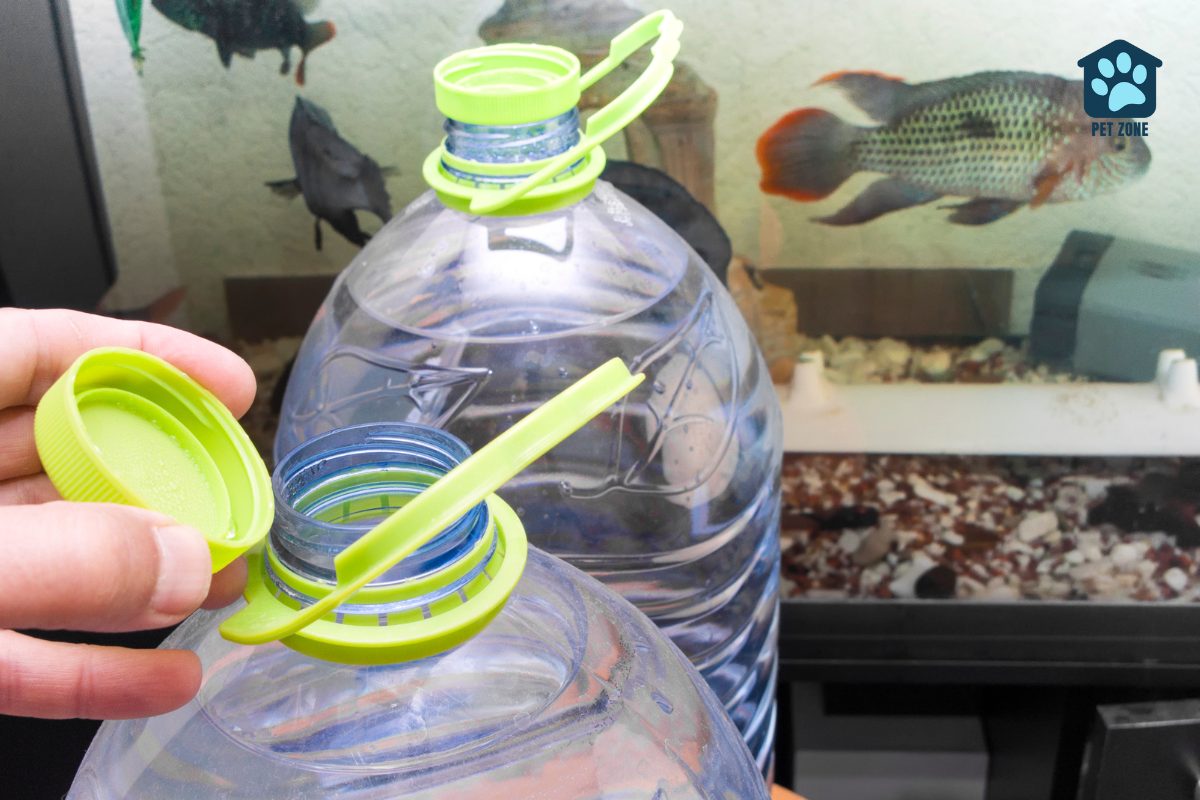
Making Distilled Water Safe for Fish
Distilled water lacks essential minerals and elements for healthy fish. You need to add these back to make distilled water safe for your fish.
- Test the water – Before adding anything, test the distilled water’s pH levels and hardness. This tells you what needs adjusting.
- Remineralize distilled water – Purchase a remineralization product designed for aquariums. Follow the instructions carefully to add the necessary minerals back into the distilled water.
- Add a water conditioner – Water conditioners help remove any possible contaminants. Even though distilled, bottled water might have trace amounts of harmful substances.
- Check for chlorine – If you mix distilled with tap water, ensure all chlorine is neutralized by using a dechlorinator.
- Adjust pH levels – Use products that raise or lower pH levels as needed to match the specific requirements of your fish species.
- Monitor tank regularly – After introducing pure distilled water and making adjustments, keep an eye on the tank’s environment. Regularly test the water to ensure it remains safe and stable for your fish.
- Introduce fish slowly – When changing or adding more treated distilled water, do it gradually to avoid shocking your aquarium’s inhabitants.
- Plan regular maintenance – Even with the right preparations, changing part of the tank water regularly is crucial to maintain optimal conditions.
Tips on Using Distilled Water in Your Fish Tanks
Re-mineralization
Re-mineralization is vital if you plan to use distilled water in your fish tank. Distilled water is stripped of essential minerals, ions, and salts needed for the health of your aquarium inhabitants.
Adding these back can be done using solid powdered form or liquid remineralizers. You can mix distilled water with mineralizing supplements or specific types of water to help fish thrive.
Always check that the re-mineralized water matches the needs of your freshwater fish tank. Testing the water after adding minerals helps guarantee a safe environment for your aquatic friends.
Proper Tank and Water Maintenance
Keeping your fish tank clean is key. Make sure to test the water regularly for pH levels and hardness. Change the water often, but avoid using distilled water alone because it lacks essential minerals.
Mixing in some tap or treated water helps bring back those needed elements.
For a healthy aquarium, cleaning filters and checking for algae growth is important. Use a good quality water source that keeps your fish safe and happy.
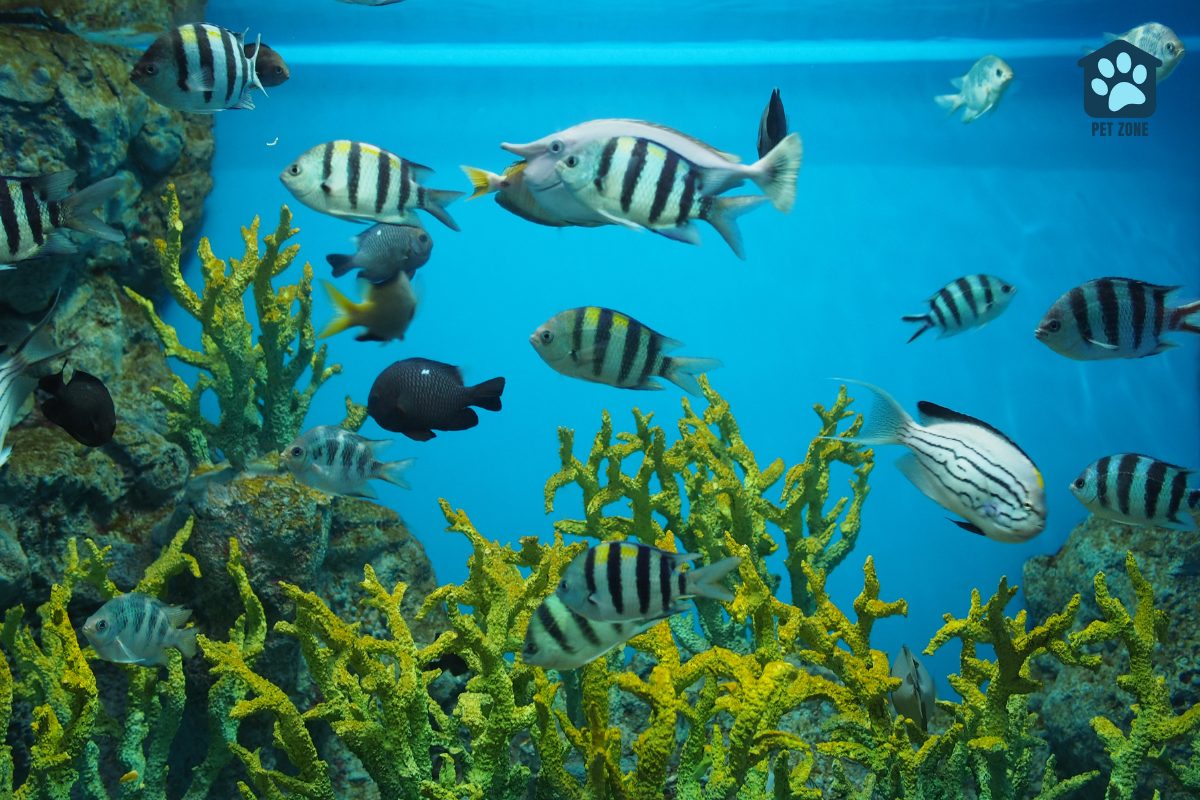
Conclusion
Distilled water alone might not be the best pick for your aquarium. Remember, it needs minerals added back to keep fish healthy.
Have you tested the tap water in your area yet? Mixing distilled with mineral-rich water could be a smart move.
Think about how pure and safe water makes all the difference for your aquatic friends. Let’s aim for the cleanest, healthiest homes for our fish by choosing wisely and adding what’s missing.
Frequently Asked Questions
The best water for your aquarium depends on the type of fish you have, but using a mix of distilled and tap water ensures it has the essential minerals necessary for fish health.
Using pure distilled water alone might harm your fish because it lacks essential minerals. It’s often mixed with tap water to make sure those needs are met.
Tap water can be used if you test it first and treat it to remove harmful substances. This makes sure the pH levels and hardness are right for your fish.
While distilled or RO water is very pure, it doesn’t contain trace amounts of minerals that are vital for your fish’s well-being, so mixing with some tap water is usually recommended.
Start by testing the tap water in your area to understand its quality and then decide if you need to mix it with distilled or deionized (DI)water to achieve ideal conditions in your aquarium.
When adding new water after evaporation, ensure it matches the existing temperature and mineral content of your aquarium’s environment, possibly by mixing distilled with conditioned tap water.
As an Amazon Associate I earn from qualifying purchases.
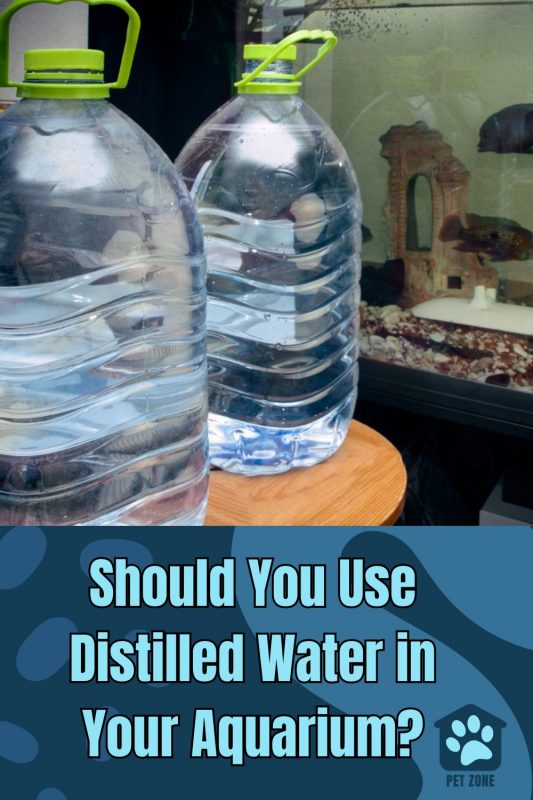


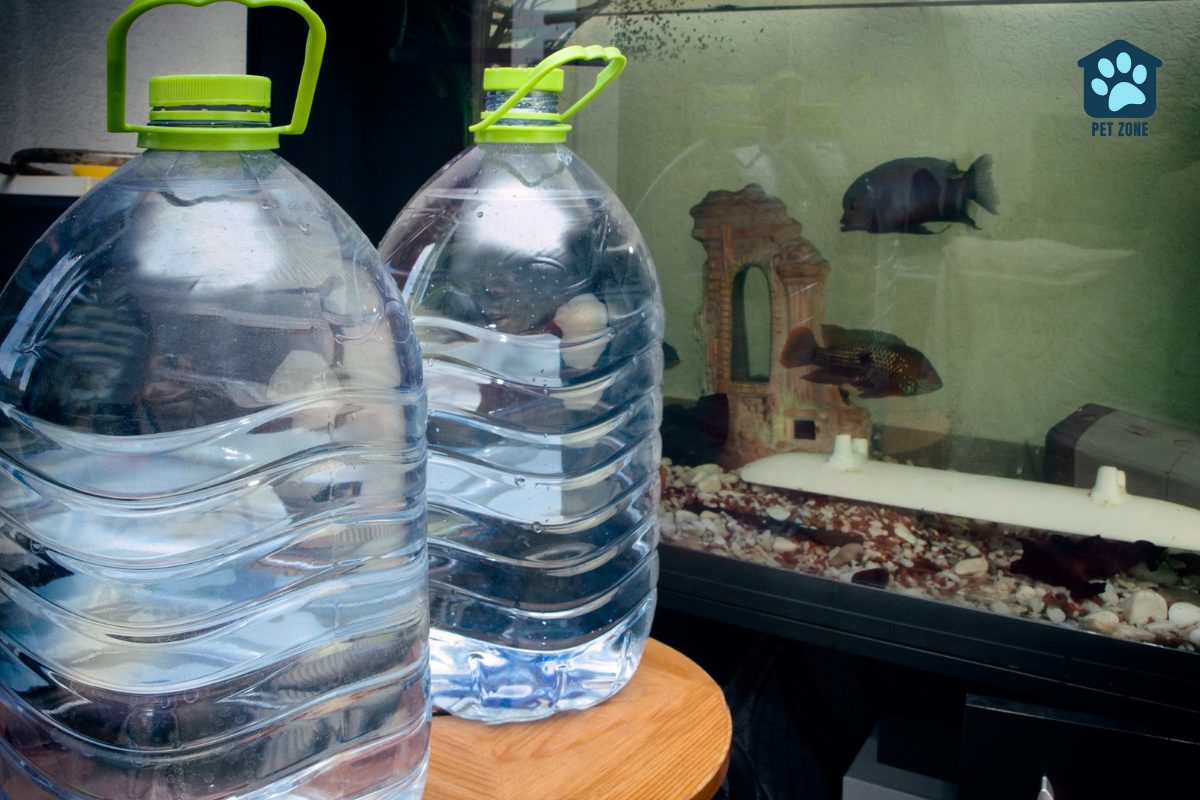
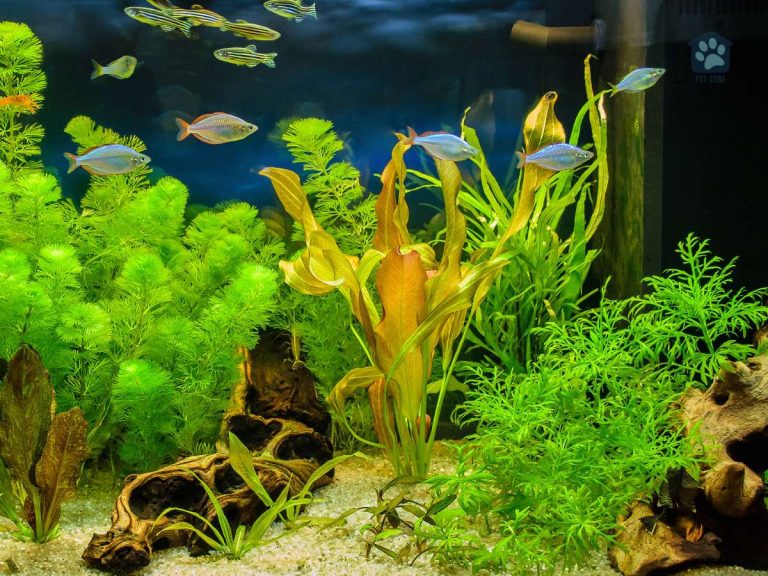
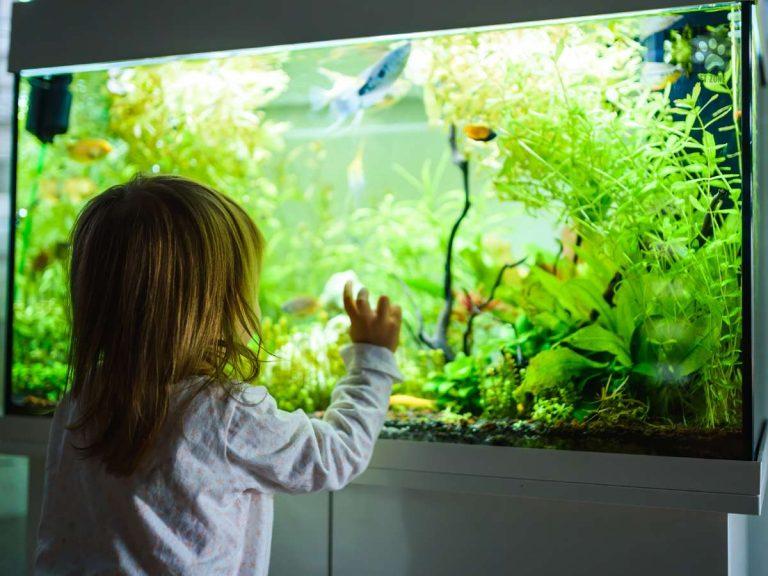
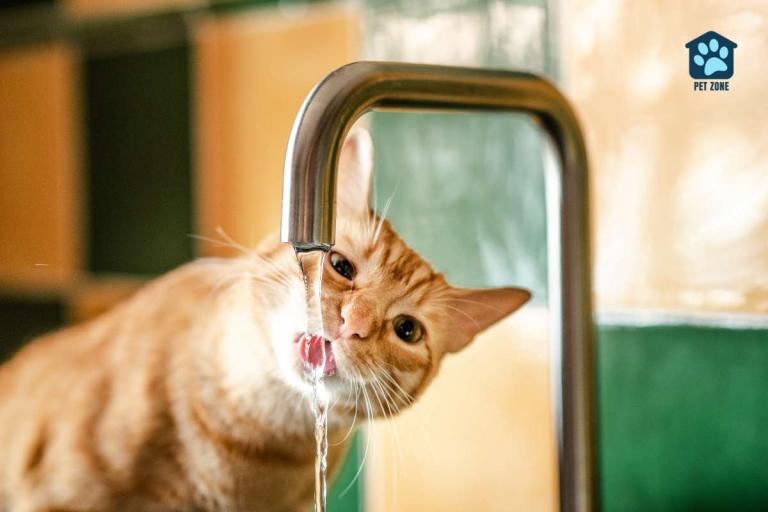
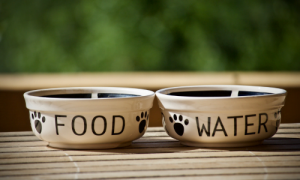
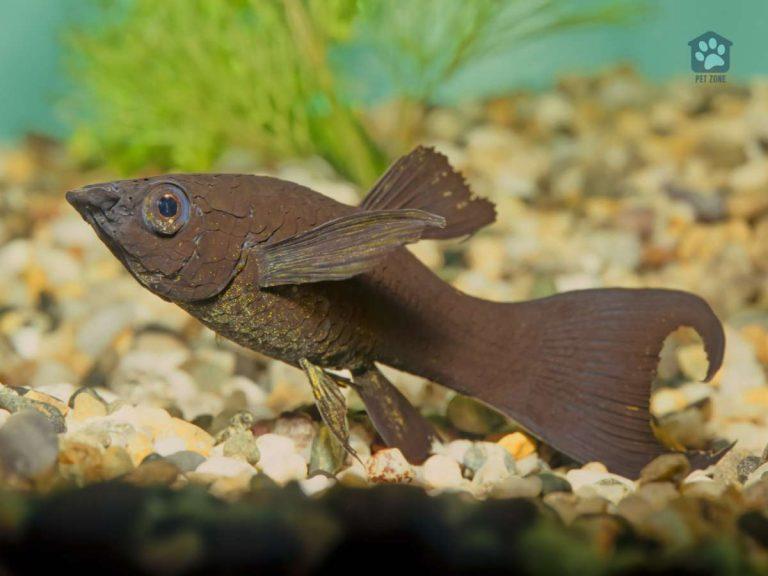
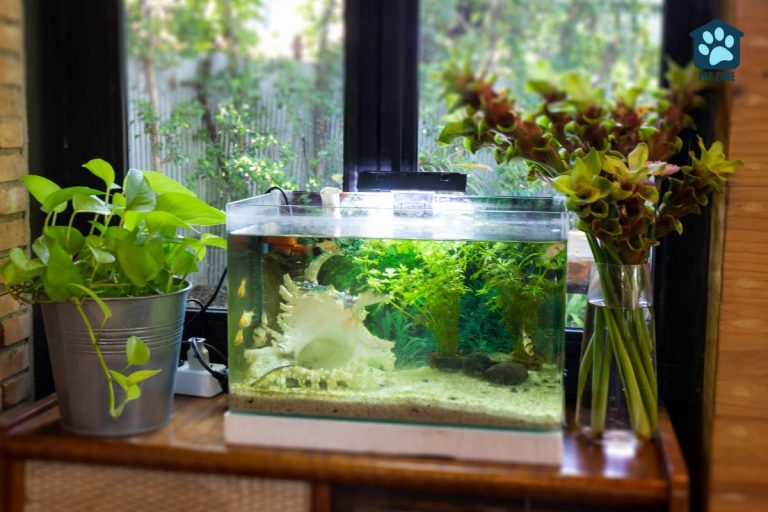
This is super helpful – I have a 50 gallon freshwater tank and wish I had an article like this to read when I was setting it up. Awesome!